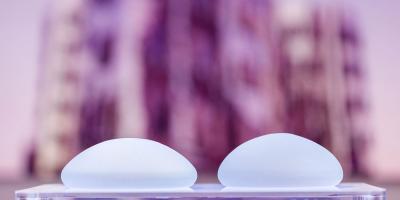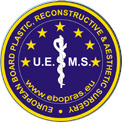Breast implant disease - social media hype or reality?
Question: What is breast implant disease (abbreviated: "BII")?
Answer: BII is not an official medical diagnosis. Women with breast implants who have various physical problems relate these to their breast implants and refer to them as Breast Implant Illness (BII). These symptoms include fatigue, breast pain, hair loss, headaches, chills, rashes, body odor, anxiety, drowsiness, insomnia, depression, neurological and hormonal problems, sensitivity to light and other chronic pain. The affected patients believe the cause of these problems lies in their breast implants, whether saline or silicone-filled, textured or smooth. The recent increase in the number of patients reporting symptoms of BII appears to be due to social media. There is a Facebook group with more than 50,000 members who all report symptoms of BII. This is not to say that social media is the cause of BII, but it may be responsible for the rapid increase in patient reporting.
Question: Is there a connection between medical silicone implants and autoimmune diseases or connective tissue diseases of the rheumatic form?
Answer: Silicone is an element that occurs naturally as crystalline silicon dioxide. Studies have shown that naturally occurring silicone can activate the immune system in certain primary diseases such as systemic sclerosis. The silicone used in breast implants has not been proven to cause such diseases. The silicone used in medical products does not exist in nature, it is produced by artificial hydroxylation of silicic acid to polydimethylsiloxane.
Question: Are there tests that indicate a connection between breast implants and symptoms known as BII?
Answer: There are no specific diagnostic tests for BII. This is a current research focus of the Aesthetic Surgery Education and Research Foundation, the research arm of the American Society for Aesthetic Plastic Surgery. However, there are tests for autoimmune diseases that can be performed to determine possible causes of a patient's symptoms.
Question: Is there any scientific data to prove that the cause of these symptoms or of a disease pattern can be found in breast implants?
Answer: In 1999, a panel of experts from the U.S. Institute of Medicine conducted a comprehensive review of the available literature to review the safety of silicone and concluded that no clear link between silicone implants and systemic disease could be established. Studies of many different variables and models were analyzed to investigate the safety of breast implants. These studies also dealt with specific autoimmune diseases and rheumatic diseases. Overall, they do not show clear links between breast implants and other diseases.
Question: Does the removal of implants improve the patient's symptoms or does it cure a medically diagnosed disease such as an autoimmune disease?
Answer: Various studies show that patients' symptoms improve to varying degrees after removal of their breast implants. Some show a permanent resolution of the symptoms. There are no studies that specifically document which symptoms improve or not, with or without capsulectomy. At present, there is no definitive epidemiological evidence of a direct link between breast implants and any particular disease condition. However, this does not mean that further investigation is not appropriate. In rare and unusual disease processes, it may take years before a scientific conclusion is reached. Further studies are needed to see which of the many reported symptoms can be improved when implants and capsules are removed, or to develop screening methods that identify patients as potentially affected. The absence of a direct, proven scientific link does not mean that the symptoms experienced by these patients are not real.
Research cannot currently define BII and therefore cannot say with certainty whether this disease exists. There are no tests that can be conducted to prove or disprove its existence. However, we treat our patients with the utmost compassion and work with them to find out how best to improve their condition, whether through implant removal or other means.
Question: What should a doctor do if a patient complains of BII symptoms?
Answer: The patient's complaints must be taken seriously. The symptoms are real, and whether or not they are related to the implants is not relevant as there are no methods yet to prove or disprove the cause or correlation.
Possible options are:
? further medical examinations with or without consultation of a rheumatologist,
? further observation without additional medical examinations,
? implant removal without removal of the capsule,
? implant change with or without capsule removal,
? removal with complete capsule (en bloc implant removal).
Patients who have concerns about BII have real symptoms that often cannot be categorized into a specific known disease type. The different options need to be discussed and hopefully, with further research, we will be able to determine which patients will experience symptom improvement or resolution when their implants are removed and which patients may not experience any change.













